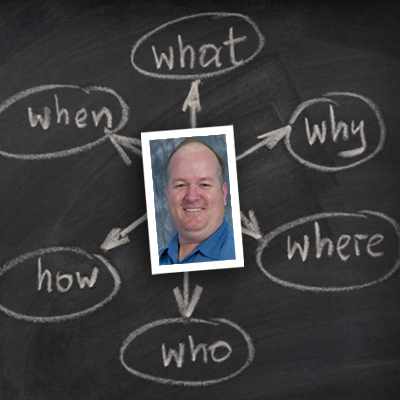
Question:
Hi Ken,
I’m a 29 year old graphic designer who got started pretty late in my career, but I was determined to find work as a graphic designer and wade through all of the interviews where they all told me I needed “more experience”. This is a very vicious phrase to use on an employment candidate, since they’re trying to get work to get experience. It turns into a vicious cycle that can drive you crazy. Well, I’ve found work in-house for a non-profit company now and love what I do. But I feel as though I’ve lost many years experience, early on, by not finding full time design work after college. I hope I’m not alone in this and that I will be able to make up for time lost. I’m passionate about what I do, and take what I do very seriously. I’m not the best designer but I know I’m not bad either. So, my question is: can a designer, who had a late start in his career, still make it up to a creative director position later on in his or her life? I’m a very hard worker and am willing to put in the extra time to get the job done. Any advice you could give would be beneficial and appreciated.
Thanks,
David
David,
I feel your frustration. It wasn’t until my mid twenties when I started down this road. My career went from high school to the military, then a minor detour, then eventually graphic design. Unlike you though I wouldn’t say that I am aspiring to be a creative director, not that you shouldn’t. I really like the creative side of our business. The brainstorming and conceptualizing the big picture seeing the entire campaign coming together but I have also enjoyed the production, technical, software side of the business. The technical/production side at times is reminiscent of when I use to sit down and draw, fun and sometimes therapeutic.
To answer your question I definitely think it is possible. The key to getting there is to fix your focus on it and go for it. I would start by making sure that you fully understand what creative directors do and how they got there, which is probably different for all of them. You could ask creative directors that you know, and if you don’t know any, you might try approaching some of the design firm/agencies you respect and see if one of their creative directors will talk to you. I have found many people in our industry who are open to helping fellow creatives figure things out. If you decide to approach a design firm/agency you respect, be respectful. Creative directors are usually very busy and while they might be willing to talk with you they don’t have a lot of time to waste and still have a business to run. I wouldn’t hound them or show up unannounced. You might start with a phone call or an e-mail and see if you get any responses. You could also attend AIGA socials and events and find a creative director through networking at these events. Depending on your focus or end goal you could also look into the Houston Ad Federation or the Houston Art Directors Club and their events.
Once you have a clearer idea of what creative directors do it should be easier to plot a course and map out your own route. The general advice I would give you would be to: continue getting experience, do great work, showcase your great work, network, compete in competitions, win awards and make a name for yourself. One of the easiest ways to move up in our industry is to produce great work and have that great work be seen by peers, competitors and employers/future employers. I would also learn the business not just design. Creative directors do more than just design and creative. As directors they also have to understand the business and handle the inevitable administrative duties and responsibilities that come with a senior management role (i.e. sales, budgets, payroll, HR/personnel, invoices, etc.).
I won’t tell you that you have an easy road ahead but I also think that most of the times the greatest rewards are down the toughest paths.
Ken